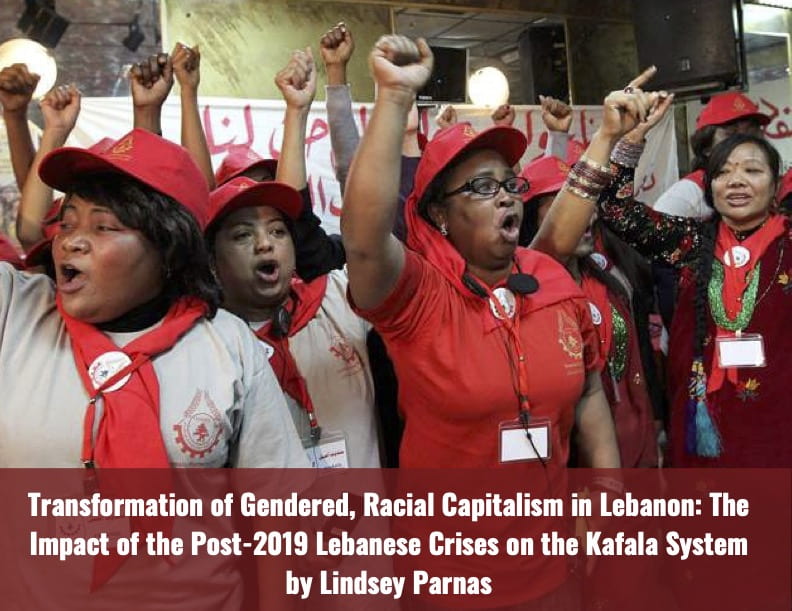VOLUME LVI- Number 2
Lindsey Parnas
Following the post-2019 economic crisis, COVID-19 pandemic, and Beirut explosion, the Lebanese economy, including migration flows, have collapsed, and migrant domestic workers (MDWs) under the kafala system have been among those most impacted by these crises, with many losing their jobs, being voluntarily or involuntarily deported, or becoming homeless. This article will argue that the periods before and after the 2019 economic crisis, COVID-19 pandemic, and Beirut explosion (1990-2019 and 2019 to today) need to be examined from a post-structural lens to examine the power struggles deepening the racialized gendered hierarchy of MDWs post-2019.
Keywords: Lebanon, migrant domestic workers, kafala system, 2019 economic crisis, Beirut explosion, COVID-19, racism, sexism, post-structuralism, biopolitics
About the Author: Lindsey Parnas (they/she) is a current candidate for the Master of Arts of Arab Studies (MAAS) and Diplomacy Studies certificate at the Georgetown University Walsh School of Foreign Service. They have extensive work experience in gender and social inclusion, peacebuilding, and Middle East and North African politics. They currently work as a Social Inclusion Program Fellow at the Berkley Center for Religion, Peace, and World Affairs. She also holds a Bachelor of Arts (BA) from Sciences Po Paris in Political Science and Middle Eastern Affairs and a BA from the University of California Berkeley in Global Studies, receiving summa cum laude at both schools.
Click here to go to previous article | Click here for full article | Click here for full Journal Issue| Click here to go to next article




You must be logged in to post a comment.